Can the North of England rival London's Tech City?
Tech North thinks it can
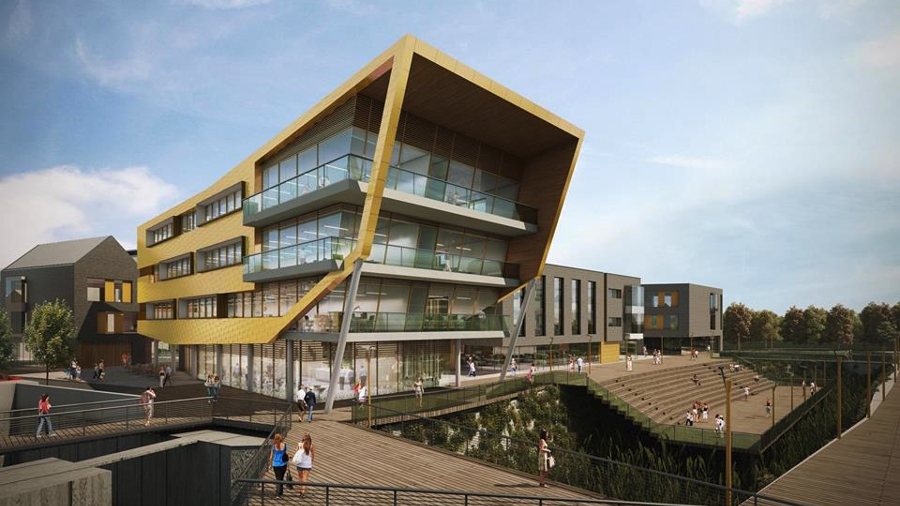
Sign up for breaking news, reviews, opinion, top tech deals, and more.
You are now subscribed
Your newsletter sign-up was successful
This article is part of TechRadar's Northern Powerhouse column, a series focusing on the development of the North of England's tech sector.
People in the North of England are said to be more vocal than their southern counterparts. But when it comes to the technology sector, the noise in recent years has come from London's Tech City.
The capital's tech cluster accommodates some of the world's biggest tech companies — including Google, Intel and Amazon — alongside almost 1,500 startups. It was recently rated the top city in Europe for Digital Entrepreneurs in the European Digital City Index, ahead of Amsterdam, Paris and Berlin.
With Tech City going from strength-to-strength, the focus has shifted to what can be done to help the North achieve similar success. It has now been a year since the Government announced its "Northern Powerhouse" strategy, which aims to redress the North-South economic imbalance by promoting innovation and devolution of powers to cities.
The strategy's unveiling was accompanied by the launch of the government-funded initiative Tech North. Part of Tech City UK, it was set up to attract investment, nurture talent and promote entrepreneurship in the seven cities of Hull, Leeds, Liverpool, Manchester, Newcastle, Sheffield and Sunderland.
Supported by a modest £2 million annual budget, Tech North has been tasked with establishing the region, where more than 170,000 people work in digital technology, into a centre for global excellence in digital innovation.

Northern soul
Headlines have focused on the capital's tech sector in recent decades, and it's easy to forget that the North of England was an economic powerhouse in the 19th and 20th centuries. But that's not to say it doesn't have its own share of modern day success stories.
Sign up to the TechRadar Pro newsletter to get all the top news, opinion, features and guidance your business needs to succeed!
Rockstar Leeds, which worked on the 54 million selling Grand Theft Auto V, is based there. Sage — the UK's only FTSE 100 technology company — has its HQ there, and the founder of Amazon-owned online film database IMDB was born there.
However, unlike Tech City, which is concentrated in a relatively small stretch of Central and East London and identifies itself through "Silicon Roundabout" (which draws a parallel with San Francisco's Silicon Valley), Tech North has tougher job of weaving together a narrative due to the greater distances between the cities involved.
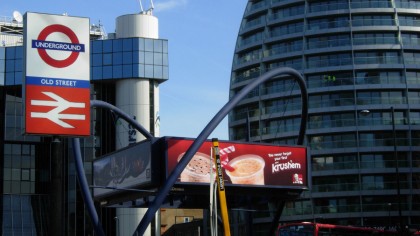
Claire Braithwaite, Head of Tech North, says that one way of telling a story is by encouraging each of the seven cities to play to their strengths within their respective sectors.
"We have a very strong opportunity in health tech now, so that will be the first sector we promote," she says. "But there's also data management, software development, and analytics.
"E-Commerce is an incredible strength of the North, and in gaming we have a nationally competitive offering there. For B2C, you only have to look at Barclays who are based in Canary Wharf, but their HQ with 3,000 developers is based in Cheshire. Barclays, and banks in general, are now tech companies.
"There's so many strengths that we have to tell the story in a coherent way so that people understand it."
Cultural mindset
There's also the feeling that the North isn't shouting about its success as loudly as it could. To become a global powerhouse, Braithwaite says that the region must change its "cultural mindset" and become more comfortable with self-promotion.
"In the bigger global hubs you see a much greater willingness to shout about everything that's happening," she says. "There's a recognition that it's not just about driving something immediate — like a sale, or promoting a new product — but building something wider."
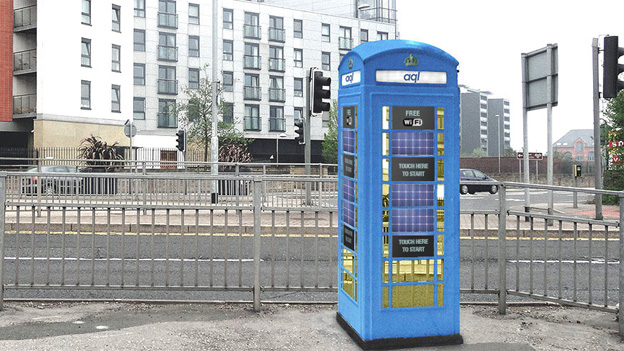
Braithwaite explains that more also has to be done to change the "ubiquitous perception" that being based in the North holds back businesses, offering the example of a developer who may move to London because they don't see similar opportunities in Newcastle or Leeds.
"I think over time we will start to identify an identity for the North's tech sector," she adds. "You have to move toward that organically to a certain extent. The starting point is telling lots of stories and showing that there's lots of things happening here that's exciting."
It's easy to forget that Tech City's success wasn't immediate, says Tech City CEO Gerard Grech. He urges people to recall that Tech City was ridiculed by the press when announced by Prime Minister David Cameron five years ago.
"Stories made fun out of the idea that London could ever be credible as a tech sector, and that's no longer the case," he says. "The ambition, the drive and the community was there, and the government was ready to engage.
"There are many constituents that make a tech ecosystem: entrepreneurs, investors, higher education and government. We need to make sure that the conditions for growth are there in there in the North."
Northern Stars
To shine a light on the region's startups and help build out communities, Tech North launched Northern Stars, a competition designed to help business founders network, share knowledge and attract investment.
Braithwaite says that accessing equity finance is a particular challenge for early stage startups, which is one reason why Tech North partnered with crowdfunding site CrowdCube for the roadshow, allowing business founders to talk to investors face-to-face.
"A symptom of working in what is in parts of the North a fragmented tech ecosystem is that entrepreneurs are not meeting other founders, so they're not hearing the inside track on how to secure investment," she explains. "It's often overlooked that investment is about people, relationships and being visible — I can't emphasise that enough to entrepreneurs looking for cash."
By showcasing the best up-and-coming startups, Northern Stars aims to build on existing networking efforts in the region, such as Newcastle's accelerator programme, Ignite, and Hull's digital innovation centre, C4DI.
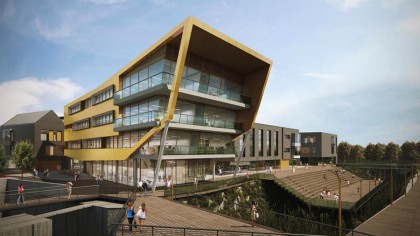
By linking up efforts between the cities involved, Tech North has an opportunity to identify and match promising startups and individuals to suitable investors.
"It's absolutely crucial to the North that we have this, because if you don't build those relationships, it ends up with pathways leading to London," says Braithwaite. "There's nothing wrong with that, but it's a missed opportunity for the North.
"We don't want to perpetuate this myth that the North needs cash — it doesn't. It's about the networks underneath that money, and how the money flows."
Talent show
As outlined in the IPPR's Northern Powerhouse report as one of the key propositions for northern prosperity, retaining the relatively high number of graduates educated at northern universities is essential for Tech North to realise its ambitions.
But Braithwaite says that Tech North is less about competing with Tech City for talent, and more about existing alongside it while doing a better job of highlighting available opportunities. Entrepreneurs, she maintains, will ultimately make the right decisions for their businesses for the right reasons.
"In creative and tech, around 80 per cent of inbound investment is going to London, and I think that's a missed opportunity for the UK as a whole," she says.
To help attract talent, Tech City UK amended its Tech Nation Visa Scheme to include a fast-track applications procedure for digital businesses in Tech North's seven focus cities. In a bid to attract entire teams with proven track records to the region, groups of up to five will be able to apply at once from November 12.

But attracting talent is only one side of the coin, and Sage UK's Andrew McFetrich says that tech companies need to think about how they can retain employees once they have attracted them by tying what they do into the greater company mission.
"Research shows that the millennial generation in particular want to know what the bigger purpose of the company is," he says. "People can go down to London and get a much bigger salary, or maybe work for a big financial organisation, but they don't really feel like they're adding value.
"They're a very small part of a big machine, whereas other companies can see the bigger picture and the impact that their work has, which can have a big impact on retention rates."
Train wreck
It's hard to think of any aspect of Tech North's success — from relationship building to attracting talent — that isn't affected by the poor state of the north's trains.
Many people in the region today are still travelling on railway "boneshakers" — trains that were produced in 1985. According to statistics from the Office of Rail and Road, In London, the average rolling stock of trains is 18.1 years, whereas the average for Merseyrail trains is 36.
HS2, which will provide a high-speed rail network from London to Birmingham to Manchester and Leeds, isn't due to run until 2026.
However, while she recognises the inconvenience and frustrating nature of sub-par travel links, Braithwaite doesn't see it as a limiting factor in the development of the North's tech ecosystem.
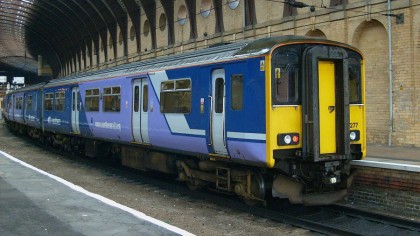
"The investment the government is making into train travel is huge and is important for a number of reasons," she says. "But it's absolutely possible to do business and build relationships in the North right now.
"I and my team are based in co-working spaces in Liverpool, Manchester, Sheffield and Newcastle, and we come together once week — you just have to get your head down and do it."
Instead of relying on delayed improvements to public transport, braithwaite suggests that Tech North could instead focus on changing public perceptions towards travel in other ways.
"I think that the tube map is one of the most iconic pieces of art in the 20th century," she says. "I've lived in London and it's bloody hard getting from one side to another, but the tube makes you think that it's really easy.
"There's lots of ways you can shift people's perceptions – that's just one example."
Having recently set up an advisory board to discuss and execute on future strategy, the indications are that Tech North is on the right track to provide the region with the support it needs as 2015 draws to a close.
And for the North and UK as a whole, that's something worth shouting about indeed.
